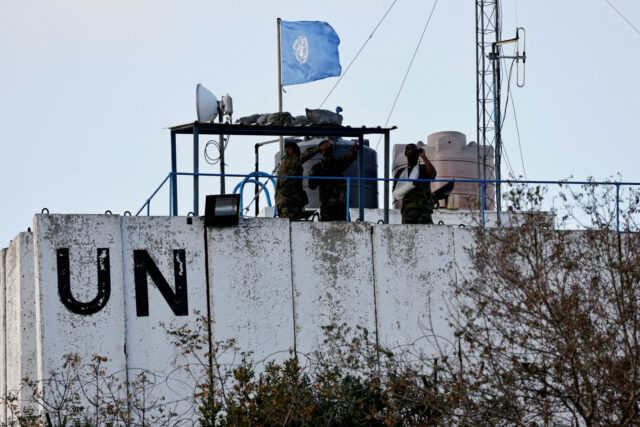
Has the UN Interim Force in Lebanon (UNIFIL) failed in its mission to keep the peace in the southern part of the country, where Israel and Hezbollah have been slugging it out for nearly two weeks?
“UNIFIL has not failed,” says Lt. Gen Vijay Singh (Retd), who handled Indian Army deployments in various UN peacekeeping missions. “The United Nations has failed since they can’t force two countries to do what they had committed to.”
Here’s a brief history lesson: UNIFIL was created in 1978 by the UN Security Council “to confirm Israeli withdrawal from Lebanon, restore international peace and security and assist the Lebanese government in restoring its effective authority in the area.”
That the force has remained in place for 46 years suggests the last has not been achieved. In fact, in the current fighting between Israel and Hezbollah, the Lebanese army is conspicuous by its absence.
Add to that, Hezbollah is a partner in the current Lebanese coalition government comprising the Christian Free Patriotic Movement and the Shia Amal movement.
Why is UNIFIL under fire? UNIFIL is not the target here, says Lt Gen Vijay Singh. “Being fired upon is more collateral than intentional. We have gone into an area to settle a dispute after a resolution between two entities and based on their deal to help monitor or resolve, so it is bound to happen.”
The diplomatic storm it has unleashed is also par for the course. UNIFIL comprises 13,000 troops with Indonesia (1,234), India (895), Ghana (875), Nepal (874) and Italy (868) among the major contributors.
“If any UN entity is hurt or disturbed, obviously the contributing nations will say this is wrong and should not happen,” Gen Singh said.
But none of the troop contributing countries have said they plan to withdraw their units if the fighting continues. UNIFIL’s mandate was renewed by the Security Council only in August this year.
Beyond this, Lebanon also underscores the intehttps://www.youtube.com/watch?v=JcOPPm53mU8rnational politics at play. While the current force commander is from Spain, his chief of staff is from France as is the deputy head of the mission. It underscores how Paris sees Lebanon.
“As a permanent member of the UN Security Council with a veto over its decision-making processes on UN peacekeeping missions, and the former colonial power in Lebanon, France is determined not to give up on that country,” says Asoke Mukherjee, India’s former permanent representative at the world body.
“But that has brought it into confrontation with other permanent members of the UN Security Council, who support the ongoing Israeli military action inside Lebanon,” he pointed out.
Lebanon is all the more important at a time when many former French African colonies are turning away from Paris.
In the Security Council, it is more likely that the UK will support the US against France on this issue. Nobody will know as these negotiations are kept secret.
For now, all indications are that UNIFIL will stay put in its current locations in southern Lebanon. But as the war continues, UNIFIL’s mandate to “monitor or resolve”, will be increasingly tested.
Thirty eight years in journalism, widely travelled, history buff with a preference for Old Monk Rum. Current interest/focus spans China, Technology and Trade. Recent reads: Steven Colls Directorate S and Alexander Frater's Chasing the Monsoon. Netflix/Prime video junkie. Loves animal videos on Facebook. Reluctant tweeter.




